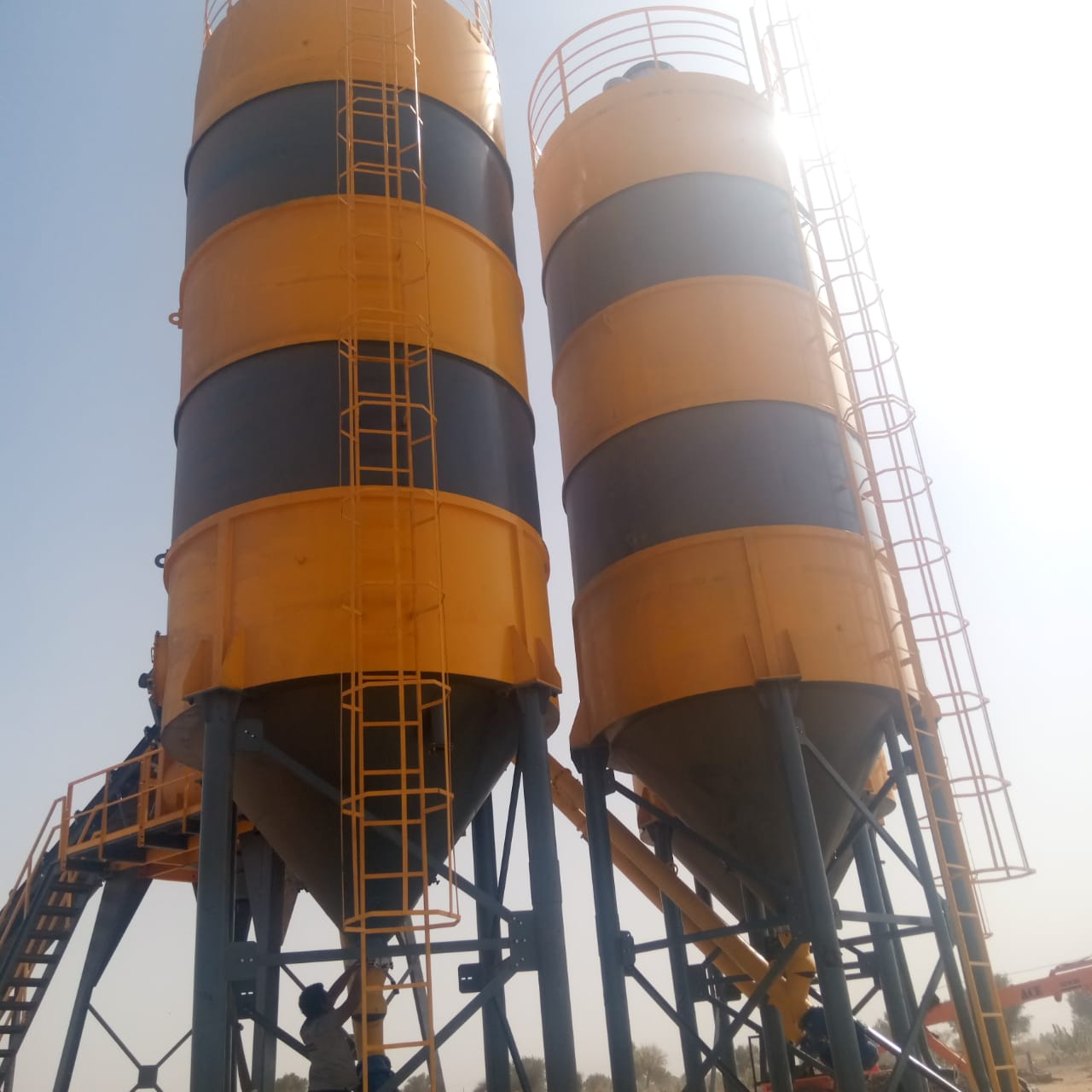Get In Touch
Get In Touch




A weighing-type silo is an advanced storage solution designed with integrated weighing systems. These silos are equipped with precision load cells and sensors, enabling real-time monitoring of the exact weight of the stored materials. This technology ensures accurate inventory management, timely replenishment, and process control, making it ideal for industries that demand precise measurement and control, such as agriculture, food processing, or chemical manufacturing. Weighing-type silos enhance operational efficiency and quality assurance by providing continuous data on material levels, reducing the risk of overfills, underfills, and associated production disruptions.
1. Material Construction: The main structure of the silo is typically constructed from high-quality steel or concrete to ensure stability and durability.
2. Weighing System: The silo is equipped with precision load cells and sensors that are integrated into the structure to measure the weight of the contents accurately.
3. Capacity: The storage capacity of the weighing-type silo can vary widely, ranging from a few tons to several thousand tons, depending on its application.
4. Accuracy: The weighing system is designed to provide high accuracy in weight measurement, typically within a specified tolerance, such as ±0.1% or better.
5. Weighing Control Unit: A dedicated control unit processes and records weight measurements, providing real-time data on material levels.
6. Software Integration: The system often includes software for data visualization, remote monitoring, and integration with other process control systems.
7. Filling and Discharge: The silo features mechanisms for filling and discharging materials, which may include conveyor systems, hoppers, and discharge gates.
8. Safety Features: Safety components like overload protection and emergency shutoff systems are integrated to prevent accidents or damage due to overloading.
9. Ventilation: Proper ventilation systems are included to maintain the quality of stored materials and prevent issues such as moisture buildup.
10. Foundation: A stable foundation, typically a concrete pad or piers, is essential to support the weight of the silo and ensure the accuracy of the weighing system.
11. Maintenance: Regular maintenance is required to keep the weighing system calibrated and functioning accurately, including routine checks and calibrations.
12. Compliance: The design and construction of the weighing-type silo should adhere to industry standards and regulations, especially regarding weight measurement accuracy.
1. Agriculture: Weighing-type silos are used to store and monitor the weight of grains, seeds, and feedstock, facilitating accurate inventory management and ensuring precise feeding of livestock.
2. Food Processing: In the food industry, these silos can store ingredients like flour, sugar, or spices, ensuring that recipes are prepared with precise quantities and reducing waste.
3. Chemical Manufacturing: Weighing-type silos are crucial for handling and storing raw materials, such as chemicals and powders, with exact measurements needed for production processes and quality control.
4. Mining and Minerals: In mining operations, these silos store minerals, ores, and aggregates, offering accurate weight measurements for efficient material handling and logistical planning.
5. Cement and Construction: Silos equipped with weighing systems are used in the construction industry to store and dispense cement, concrete, and aggregates, enabling precise batching for construction projects.
6. Waste Management: These silos are employed to monitor and manage waste materials, ensuring that disposal facilities do not exceed their weight limits and helping to optimize waste management processes.
7. Plastics and Petrochemicals: Weighing-type silos are used to store plastic granules and raw materials for the plastics industry, ensuring accurate dosing in manufacturing processes.
8. Pharmaceuticals: In pharmaceutical manufacturing, precise measurements of ingredients are critical for drug formulation, making weighing-type silos essential for quality and safety.
9. Energy Generation: In power plants, silos equipped with weighing systems store materials like coal or biomass, ensuring accurate fuel usage and emissions control.
10. Environmental Monitoring: These silos can be used in environmental monitoring stations to measure the weight of collected samples, such as air particulates or water pollutants.
11. Material Recycling: Silos play a role in recycling facilities to store and weigh recyclable materials before processing and shipment.
12. Aerospace and Defense: In applications requiring the precise measurement of materials, such as propellants or specialty chemicals, weighing-type silos are used in aerospace and defense industries.


